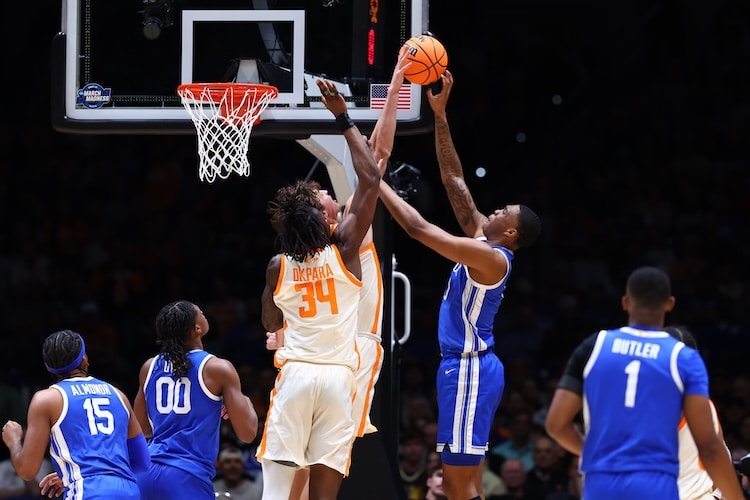Prince Rogers Nelson died yesterday, and the moment he did, a piece of me died, too. If you’re reading these words, it’s likely a part of you died, as well.
Few things are as evocative as music. Able to harken back to another time, another era, in the blink of an eye. And Prince’s early body of work was and will forever be the soundtrack of my youth. But youth is one of those beautiful things that’s never fully appreciated until it’s gone.
These days, mine is nothing more than a fond recollection, vicariously captured through the lives of my five children, the oldest of whom is in eighth grade. Full circle it would seem, as it was the summer after my eighth grade year when Purple Rain was released.
I try to avoid becoming one of those dads who dismisses the pop culture his children consume, as well as the digital mediums through which they consume the bulk of it. At least not without trying to fully understand it first if for no other reason than because the moment you dismiss something you don’t fully understand is the moment you become irrelevant.
That policy has served me well, as aside from bro country (which I understand completely, thank you very much), I’ve come to appreciate most all the things that my eighth grade daughter does. But I’d be lying if I told you I was 100% cool with some of the words I hear emanating from my car speakers. Call me old fashion, but I find it awkward when my daughter and I ride along silently while lyrics such as slide her panties to the side, now she wanna ride sit like a pink elephant in the back.
With each passing year, it seems the FCC makes car rides with my children ever more awkward. Yet while hearing sexually explicit lyrics on the radio may be relatively new, there’s nothing new about sexually explicit lyrics, themselves. They’ve been around forever, and no one pushed the envelope further than the man who repeatedly beckoned a “sexy motherfucker” amidst an explosion of horns.
I like to pretend that my middle school daughter couldn’t possibly understand the provocative lyrics which bombard her each and every day. (Far less expensive than therapy.) Yet I knew damn well what 1999’s “Let’s Pretend We’re Married” was about back when I was in seventh grade, and I’m no worse for the wear. I sincerely wanna fuck the taste out of your mouth kinda tipped me off. And if, in “Darling Nikki,” call me up whenever you wanna grind managed to escape me, masturbating with a magazine most certainly did not.
But while Prince may have been one of many in a long line who’ve thrown down the sexually-provocative-lyrics card, he somehow managed to play his hand far differently than everyone else. Mysteriously, I would argue.
Take Weezy’s “Good Kush and Alcohol,” for example. There’s nothing mysterious about it. I feel her heartbeat. I’m chest to chest with this bitch. Now turn around, face down, I’m arrestin’ this bitch is pretty straightforward, if not disturbingly misogynistic.
But Prince’s sexuality was shrouded in a fair amount of mystique. As lewd as he was, he was never misogynistic, offering a genteel (albeit profane) brand of erotica more than anything. The androgynous little man would provocatively invite, but never crassly force. Which, in turn, is why his sexuality, itself, never felt forced. It never was. And why, too, it was so well received. His admirers were intrigued, mesmerized, even, by the masculinity it took for him to embrace the ambiguity — perhaps even the femininity — of his sexuality so flamboyantly. So confidently.
But Prince’s approach to sexuality wasn’t the only thing that distinguished him from everyone else. Few in the music industry have ever been as prolific, and much of that proliferation benefited others. Vanity 6’s “Nasty Girl,” The Time’s “Jungle Love,” Shiela E’s “The Glamorous Life,” Chaka Khan’s “I Feel For You,” Sheena Easton’s “Sugar Walls,” The Bangles’ “Manic Monday” and Sinead’s O’Connor’s “Nothing Compares 2 U” were all songs penned by Prince.
Naturally, he saved a few for himself. His 39 studio albums sold over 100 million copies and generated over 100 singles. Twenty seven of them were top-25 hits, 19 landed in the top 10 and five went all the way to No. 1.
He also managed to take home seven Grammys and an Oscar (for the Purple Rain soundtrack), yet he’s still arguably underrated as a musician. Despite the fact he was a bonafide musical genius. The kind of guy who didn’t need a band (he played all 27 instruments on his first studio album) but usually had one anyway. With or without a band, he could hang with the highest of falsettos and the lowest of baritones. And let’s not forget (though, admittedly, I had) that Prince delivered the best Super Bowl halftime show ever in the 2007 game (the year Peyton won his first ring). In a downpour no less.
If you just watched that again, you immediately remembered how hard the guy could shred. And while he doesn’t get enough props for his musicianship in general, he’s vastly underrated as a guitarist in specific. Consider this performance of “While My Guitar Gently Weeps” from the 2004 Rock and Roll Hall of Fame Induction Ceremony as all the evidence you’ll need. (His part comes in around the 3:30 mark.)
If I’m nitpicking, the one thing that rubbed me wrong about Prince was an occasional propensity to come off as self absorbed. In particular when he famously changed his name to an unpronounceable sign in 1993. But Prince always got the pass in my book. Partly because he was a genius, and hey, geniuses are allowed a little leeway in the self absorption category. But partly, and more importantly, because of what was behind his decision to make that change.
It was part and parcel of the war he waged against his record label who he felt held unjust control over not only his music, but also his name. It was around that time he was making public appearances with the world “slave” written on his face. Because of this war he waged, The New York Times aptly described Prince as “a trailblazing and sometimes controversial champion for his rights as an artist.”
Prince won the war, with the end result being his return to Warner Brothers in 2014 after successfully regaining the ownership of his catalog. Which proved that not only was Prince a music icon, he was also one hell of a businessman, too.
But despite the commercial success furthered still by business acumen, Prince was as far from a sellout as is humanly possible. And I was reminded of that by the great Tony Basilio when, in light of Prince’s passing, he replayed an interview he’d conducted a couple years back with Alan Light, author of Let’s Go Crazy: Prince and the Making of Purple Rain, a book released in conjunction with the 30-year anniversary of the movie, itself.
One of the most interesting points Alan made concerned the relatively short period of time Prince spent on tour promoting Purple Rain. Just five months on the road before he returned home to work on his next project.
Conversely, Bruce Springsteen spent nearly three times that promoting his seminal work, Born in the USA. Which is not to disparage Springsteen, but instead to point out that Prince always seemed more concerned with creation than commerce. The guy had just put out a movie (which he was heavily advised against doing) that made The Who’s Tommy come off like High School Musical, and instead of turning it into a four-nation, two-year cash grab, he was on to the next thing in the blink of an eye.
And that next thing, Around the World in a Day, was quite a departure from Purple Rain, and nowhere near the commercial success. Which is basically what I always perceived Prince to do. Vacillate between commercially appealing to the masses and artistically appealing to him, never concerned, it seemed, if the two should meet, though so often they would. And that was the secret behind his ability to cash in without selling out. By simply having the balls to find his own path. Just as he did with his sexuality. Just as he did with his dealings with the record industry.
At some point, most blessed with his kind of talent have to choose between artistic integrity and mega-superstardom. But for some reason, Prince never had to make that choice. He got them both and in so doing, he had it all. And yesterday, he took it all with him, aside, that is, from a musical legacy as substantial as any of the countless recording artists who’ve predeceased him. As the world continues to mourn his death, it’s that legacy which gives us solace. But the same one which also makes me wonder:
If youth is one of those beautiful things that’s never fully appreciated until it’s gone, could the same be said of Prince? I’d like to think otherwise, because Lord knows the man was beloved by millions. Still, it’s hard to not take the living for granted. Even those who qualify as living legends.
One thing’s for certain, though. Today, there’s one fewer of those.
Thank you, Prince. May you rest in peace.





